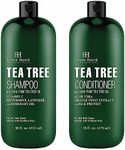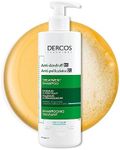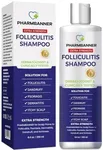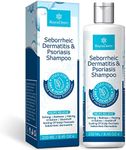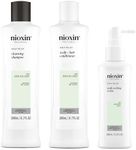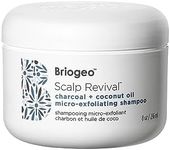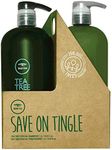Buying Guide for the Best Dry Scalp Shampoos
Choosing the right dry scalp shampoo can make a big difference in your comfort and hair health. The main goal is to find a product that soothes irritation, reduces flakiness, and restores moisture to your scalp without causing further dryness or buildup. When shopping, it's important to look beyond marketing claims and focus on the ingredients and features that match your specific scalp needs. Understanding the key specifications will help you make a more informed choice and avoid products that might not work for your unique situation.Active IngredientsActive ingredients are the main components in a shampoo that target scalp dryness and related issues. Common ones include pyrithione zinc, salicylic acid, coal tar, ketoconazole, and natural oils like tea tree or coconut oil. Each ingredient works differently: some fight dandruff-causing fungi, others exfoliate dead skin, and some deeply moisturize. If your scalp is itchy and flaky, look for anti-fungal or exfoliating ingredients. If your main concern is dryness and irritation, moisturizing oils and gentle formulas are better. Always check for ingredients that address your specific symptoms.
Moisturizing PropertiesMoisturizing properties refer to how well the shampoo can hydrate your scalp and hair. Ingredients like glycerin, aloe vera, shea butter, and various plant oils are known for their ability to lock in moisture. If your scalp feels tight, itchy, or you notice white flakes, a shampoo with strong moisturizing properties can help restore balance. For mild dryness, lighter moisturizers may be enough, while severe dryness may require richer, more nourishing formulas.
Sulfate ContentSulfates are cleansing agents that create lather but can strip natural oils from your scalp, making dryness worse. Shampoos labeled as 'sulfate-free' are gentler and less likely to irritate a dry scalp. If you have sensitive skin or already struggle with dryness, choosing a sulfate-free shampoo is usually best. If your hair is very oily or you use a lot of styling products, you might tolerate mild sulfates, but most people with dry scalp benefit from avoiding them.
Fragrance and AdditivesFragrances and certain additives can make a shampoo smell pleasant or look appealing, but they can also irritate sensitive scalps. If you have a history of allergies or your scalp is easily irritated, look for shampoos labeled as 'fragrance-free' or 'hypoallergenic.' If you enjoy scented products and have no sensitivity, a mild fragrance may be fine, but always be cautious with strong perfumes or artificial colors.
pH BalanceThe pH level of a shampoo affects how gentle it is on your scalp. A pH-balanced shampoo (usually between 4.5 and 5.5) helps maintain your scalp’s natural barrier, preventing further dryness and irritation. If you have a sensitive or very dry scalp, choosing a pH-balanced shampoo can help keep your scalp healthy and comfortable. If you’re unsure, most shampoos for dry scalp are formulated to be pH-balanced, but it’s always good to check.
Frequency of UseSome dry scalp shampoos are designed for daily use, while others are meant for use only a few times a week due to their strength. If your scalp is only mildly dry, a gentle daily shampoo may be suitable. For more severe dryness or medicated shampoos, using them less frequently as directed can prevent over-drying or irritation. Always read the label and consider how often you plan to wash your hair when choosing a product.
